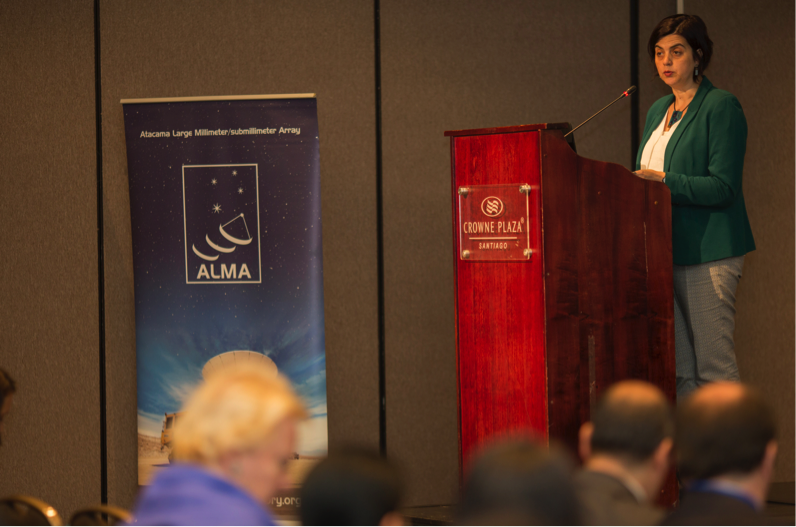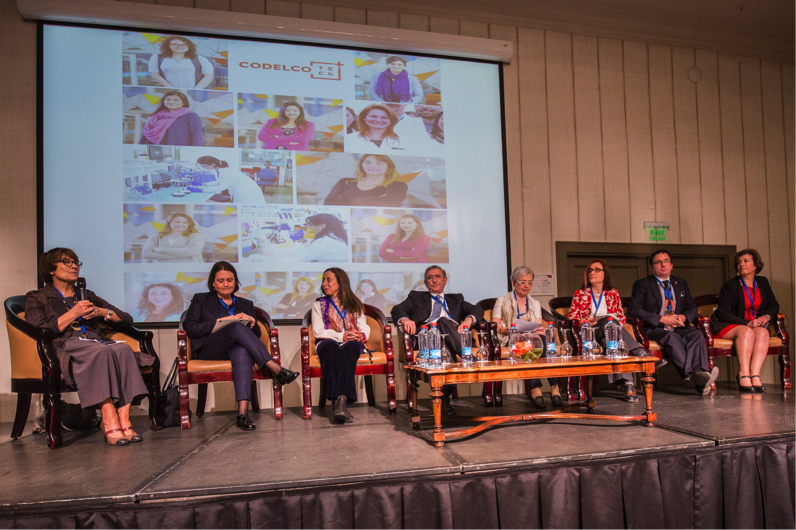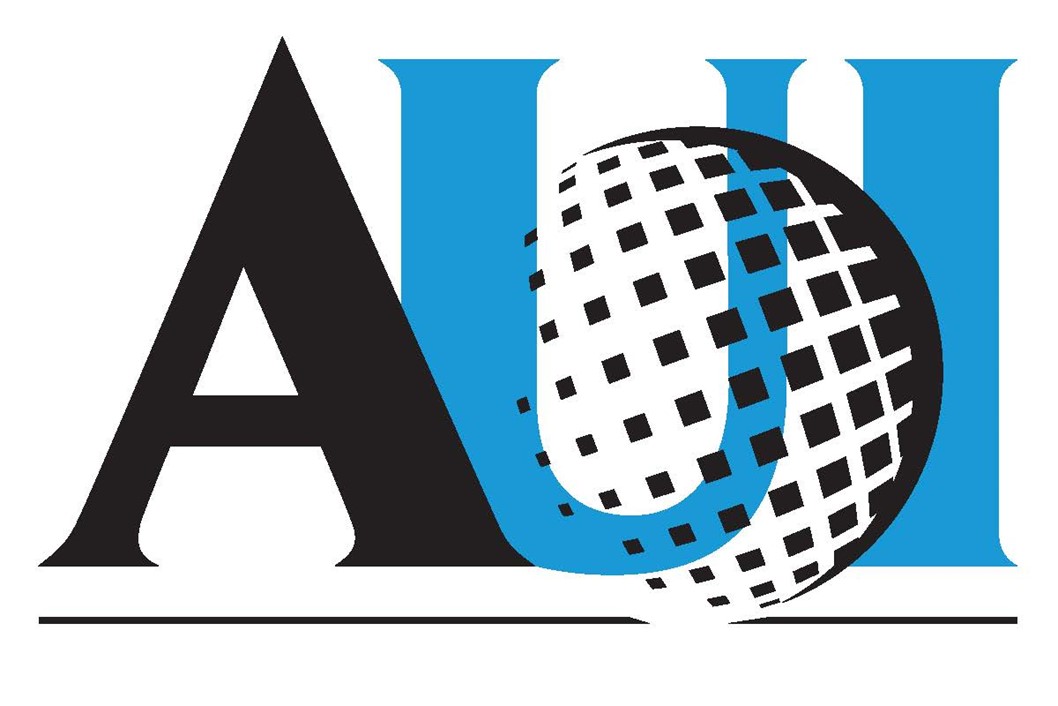The [CII] Resolved ISM in STar-forming galaxies with ALMA (CRISTAL survey) peered back to when the Universe was only about one billion years old – a mere toddler in cosmic terms. These observations are helping scientists understand how galaxies formed and evolved from primordial gas clouds into the organized structures we see today.
Recent News
NSF NRAO Leads Critical Spectrum Studies to Safeguard Radio Astronomy
The U.S. National Science Foundation National Radio Astronomy Observatory (NSF NRAO) has received funding to expand its study of an invisible—and crucial—scientific and technological resource: the radio spectrum.
Largest Oort Cloud Comet Ever Observed Reveals Its Secrets with ALMA’s Powerful Gaze
A team of astronomers has made a groundbreaking discovery by detecting molecular activity in comet C/2014 UN271 (Bernardinelli-Bernstein)—the largest and second most distantly active comet ever observed from the Oort Cloud.
AUI Sponsors Women in Astronomy and Engineering Workshop in Chile
CHILEAN MINISTER FOR WOMEN’S AFFAIRS ENCOURAGES GENDER EQUALITY IN SCIENCE, ENGINEERING, TECHNOLOGY AND MATHEMATICS
The Minister for Women’s Affairs and Gender Equality will shortly inaugurate a workshop on gender equality in astronomy and related engineering disciplines. The event seeks to raise awareness of the current state of inclusion and retention of women in these areas, as well as analyze existing challenges and opportunities. Chilean and foreign participants will discuss best practices, while a group of female astronomers and engineers will share their experiences to encourage scientific vocations amongst young students.
The Atacama Large Millimeter/submillimeter Array (ALMA) and Associated Universities, Inc. (AUI)/National Radio Astronomy Observatory (NRAO) are organizing the “Women in Astronomy and Engineering Workshop” within the framework of the 27th International Conference on Astronomical Data Analysis Software and Systems (ADASS). The event will take place on Thursday, October 19th, from 9:00 onwards at the Crowne Plaza Hotel in Santiago and will be inaugurated by the Minister for Women’s Affairs and Gender Equality, Claudia Pascual.
Paula Astudillo, director of the Research Division at the National Commission for Scientific and Technological Research (CONICYT) will present the findings of two studies carried out by this institution; one focused on Chile´s training and promotion of women in science, technology, engineering and mathematics (STEM), and the other on successful international strategies and initiatives.
The presentation of these research findings will be followed by two roundtables discussions. The first of them is targeted to decision-makers and professionals and will address best practices for gender equality in the public, private and academic sectors. The second roundtable will target high school and university students showing career opportunities in STEM; female astronomers and engineers will share their personal experiences reflecting on challenges and how to overcome them.
The roundtable on best practices will include comments by: Laura Albornoz, CODELCO board member and former Minister of the National Service on Women’s Affairs, who will analyze public policies and best practices in the mining industry; Beatriz Astorga, marketing director at Kodea, who will share this organization´s experience with the inclusion of women in technology and computer sciences; Raúl Ciudad, president of the Chilean Association of Information Technology Companies (ACTI) and SOFOFA board member, who will speak about the role of the private sector in the inclusion of women; Nuria Lorente, senior astronomical instrumentation and systems software engineer at the Australian Astronomical Observatory (AAO), who will reflect on successful initiatives in that country; Michèle Péron, director of engineering at the European Southern Observatory (ESO), who will underscore the importance of organizational culture and understanding unconscious biases; Pierre-Paul Romagnoli, dean of Exact Sciences at U. Andrés Bello, who will discuss the experience of his university, which has a high percentage of female students and faculty in astronomy; and Mónica Rubio, full professor at U. of Chile and former director of the Astronomy Program at CONICYT, who will address work-life balance.
The second roundtable will gather the following professionals: Loreto Barcos, NRAO-ALMA astronomer, who will discuss the challenges of retaining girls´ interest in STEM; Fabiola Cruzat, ALMA engineer, who will relate her experience as a university student and supervisor of antenna maintenance at the observatory; Nancy Hitschfeld, associate professor of Computer Sciences at U. of Chile, who will present a historic overview of the inclusion of women in engineering in Chile and U. of Chile´s experience with affirmative action; José Tomás Lobo, commercial director at Laboratoria Chile, who will describe his organization´s efforts in job placement of women in computer programming; Bárbara Rojas-Ayala, assistant professor at U. Andrés Bello, who will speak about impostor syndrome; and Yessika Salazar, general manager at Datco and Silica Network, who will highlight the value of diversity in work teams.
Paulina Bocaz, AUI/NRAO representative in Chile, the North American partner in ALMA, stated “Chile will host around 70% of the global astronomical observation capacity by 2025. As the country positions itself as the world´s astronomy capital, inclusion and empowerment of its women become paramount to its further development. Among Latin American countries, Chile lags behind its neighbors in terms of women´s participation in science. Only 19% of Chilean women choose to study careers such as astronomy or engineering. To tackle this challenge, AUI/NRAO and ALMA are committed to raising awareness about and adopting best practices in gender equality, as well as promoting STEM vocations among Chilean youth.”
Jorge Ibsen, head of computing at ALMA and co-chair of ADASS added, “Today Chile is an incubator of great talents in astronomy, computer sciences, engineering and mathematics. The gap in equality in these areas wastes professional and talented women that would be a great contribution, not only for the country’s sciences, but also to create a platform of industrial development based on them, such as retail and biotechnology. We need to make progress in terms of public policies and the commitment of the academic and industrial sectors, in order to close the gender gap.”
This event is co-sponsored by the Ministry of the Economy, Development and Tourism, the Ministry for Women’s Affairs and Gender Equality, CONICYT, Girls in Tech, the Chilean Astronomical Society (SOCHIAS) and the Society for Industrial Development (SOFOFA).
People interested in attending can register by sending an email to [email protected]. Live streaming will be available at: www.nrao.cl
 Workshop Images
Workshop Images

Chilean Minister for Women’s Affairs and Gender Equality, Claudia Pascual inaugurating the event. Credit: Claudio Nuñez, CONICYT

Members of the round table focused on best practices. Credit: Claudio Nuñez, CONICYT.

Professionals on the round table on career opportunities in STEM. Credit: Claudio Nuñez, CONICYT.
Recent News
ALMA Reveals Stunning Details of Infant Galaxies in the Early Universe
The [CII] Resolved ISM in STar-forming galaxies with ALMA (CRISTAL survey) peered back to when the Universe was only about one billion years old – a mere toddler in cosmic terms. These observations are helping scientists understand how galaxies formed and evolved from primordial gas clouds into the organized structures we see today.
NSF NRAO Leads Critical Spectrum Studies to Safeguard Radio Astronomy
The U.S. National Science Foundation National Radio Astronomy Observatory (NSF NRAO) has received funding to expand its study of an invisible—and crucial—scientific and technological resource: the radio spectrum.
Largest Oort Cloud Comet Ever Observed Reveals Its Secrets with ALMA’s Powerful Gaze
A team of astronomers has made a groundbreaking discovery by detecting molecular activity in comet C/2014 UN271 (Bernardinelli-Bernstein)—the largest and second most distantly active comet ever observed from the Oort Cloud.
